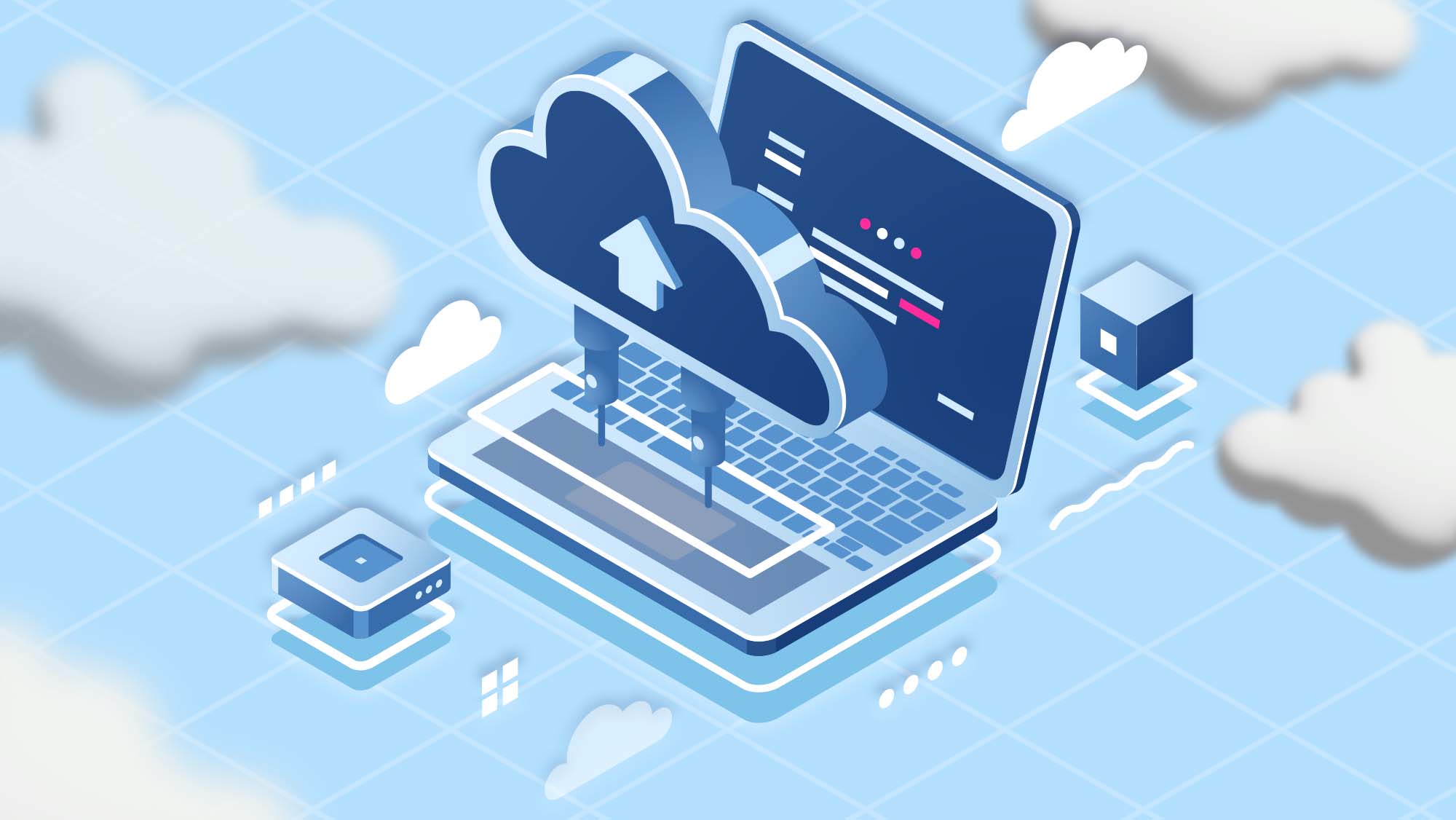In the rapidly evolving landscape of modern business, where agility and efficiency are paramount, Cloud Enterprise Resource Planning (ERP) solutions have emerged as a game-changer. These systems are designed to streamline and integrate a wide range of critical business processes, from finance to human resources, and are hosted in the cloud, offering unparalleled benefits. In this blog, we’ll look deep into the world of Cloud ERP, exploring its benefits and some popular solutions.
Understanding Cloud ERP: A Brief Overview
ERP software has been around for decades, helping organizations manage their core business processes. Traditionally, ERP systems were on-premises solutions, requiring substantial infrastructure and IT support.
However, the advent of cloud computing brought about a transformation in ERP. Cloud ERP solutions, as the name suggests, are hosted in the cloud rather than on local servers. This shift has ushered in a new era of flexibility, accessibility, and cost-effectiveness.
What is Cloud ERP?
ERP is a comprehensive software solution designed to integrate and automate core business processes such as finance, human resources, procurement, supply chain management, and more. While traditional ERP systems are typically on-premises solutions, Cloud ERP takes a different approach by hosting these applications in the cloud.
In simpler terms, Cloud ERP allows organizations to access and use ERP software and data through the Internet, rather than relying on physical, on-site servers and infrastructure. This shift to the cloud has revolutionized the way businesses manage their operations, offering a host of benefits.
Benefits of Cloud ERP:
Cost Efficiency:
Reduced Hardware Costs: Cloud ERP eliminates the need for substantial on-site hardware infrastructure, saving capital expenditure.
Lower Maintenance Costs: Routine maintenance and updates are handled by the cloud provider, reducing IT overhead.
Scalability:
Flexibility to Grow: Cloud ERP solutions can easily scale up or down based on an organization’s needs, making them suitable for businesses of all sizes.
Accessibility:
Anywhere, Anytime Access: Cloud ERP can be accessed from any device with an internet connection, facilitating remote work and collaboration.
Security:
Advanced Security Measures: Reputable cloud ERP providers invest heavily in security, often offering advanced features like encryption, multi-factor authentication, and regular security audits.
Streamlined Operations:
Integrated Processes: Cloud ERP centralizes data and processes, enabling seamless information flow across departments.
Data Analytics:
Advanced Reporting: Cloud ERP often includes robust reporting and analytics tools, allowing for data-driven decision-making.
Automatic Updates:
Stay Current: Cloud ERP providers handle software updates and patches, ensuring that businesses always have access to the latest features and security enhancements.
Popular Cloud ERP Solutions:
Oracle NetSuite:
Key Features: Offers a comprehensive suite of applications, including financial management, CRM, and e-commerce.
SAP Business ByDesign:
Key Features: Designed for mid-market businesses, it covers finance, sales, procurement, and more.
Microsoft Dynamics 365:
Key Features: Integrates with Microsoft Office and includes applications for sales, marketing, finance, and customer service.
Infor CloudSuite:
Key Features: Offers industry-specific solutions for sectors like manufacturing, healthcare, and hospitality.
Acumatica:
Key Features: Known for its flexibility, it allows for customizations and offers a wide range of modules.
Epicor ERP:
Key Features: Suited for manufacturing and distribution, it provides tools for supply chain management, production, and finance.
Workday:
Key Features: Primarily focused on HR and financial management, it’s popular among large enterprises.
Choosing the Right Cloud ERP Solution:
Selecting the right Cloud ERP solution for your organization is a critical decision. Here are some factors to consider:
Business Needs: Identify your organization’s specific needs and goals. Different ERP solutions cater to various industries and business sizes.
Scalability: Ensure that the ERP system can grow with your business.
Integration: Check if the ERP solution seamlessly integrates with your existing software and systems.
Cost: Understand the pricing model, including subscription fees, implementation costs, and ongoing maintenance expenses.
User-Friendliness: The system should be intuitive, and user training and support should be readily available.
Customization: Consider whether the ERP system can be tailored to meet your unique requirements.
Vendor Reputation: Research the vendor’s reputation, customer reviews, and track record.
Challenges in Implementing Cloud ERP:
While the benefits of Cloud ERP are substantial, there can be challenges in the implementation process:
Data Migration: Transferring data from legacy systems to the cloud can be complex.
Integration Issues: Ensuring that the ERP system seamlessly integrates with existing software can be a significant challenge.
Change Management: Employees may resist changes in processes and systems, necessitating change management strategies.
Security Concerns: Despite robust security measures, some organizations remain concerned about data security in the cloud.
Conclusion:
Cloud ERP solutions have redefined how businesses operate by offering cost-effective, scalable, and accessible systems that integrate critical processes. When implemented correctly, they can drive efficiency, improve decision-making, and enable organizations to remain competitive in a rapidly changing business landscape.
However, the choice of a Cloud ERP solution should be made carefully, considering the unique needs of your organization. Moreover, effective change management and data migration strategies are essential to ensure a smooth transition to the cloud. In this digital age, Cloud ERP isn’t just an option; it’s often the key to unlocking business excellence and future growth.
In today’s highly competitive business environment, the ability to adapt, innovate, and respond swiftly to market changes is paramount. Cloud ERP provides the agility and agility needed for businesses to thrive. It empowers organizations to focus on what they do best while leaving the complexities of IT management to experts.
As the business world continues its digital transformation journey, Cloud ERP stands as a cornerstone technology that enables organizations to harness the full potential of their operations. By streamlining processes, enhancing collaboration, and providing actionable insights, Cloud ERP doesn’t just improve business performance; it unlocks a path to excellence.
In conclusion, for businesses looking to thrive in the digital age, Cloud ERP is not just an option; it’s a strategic imperative. It’s a tool for unlocking business excellence, staying ahead of the competition, and building a future-ready organization. Embracing Cloud ERP is not merely an investment in technology; it’s an investment in the future success of your business.

